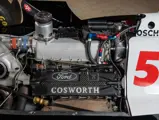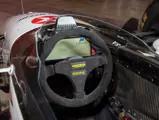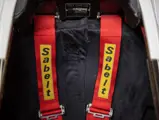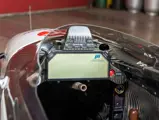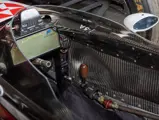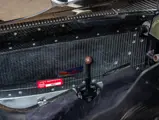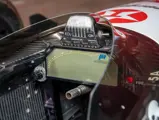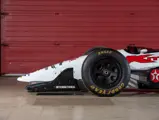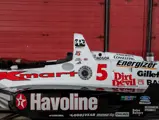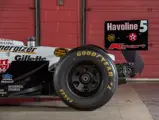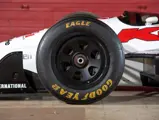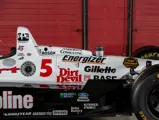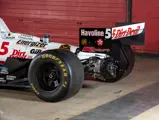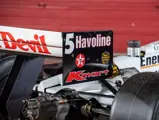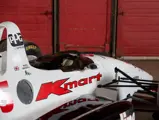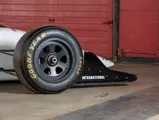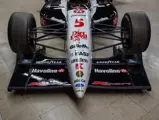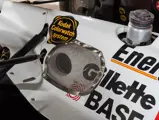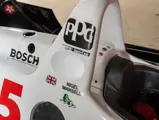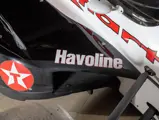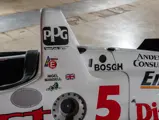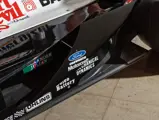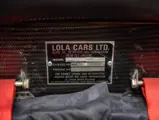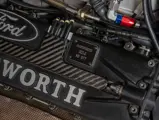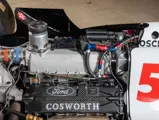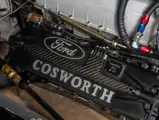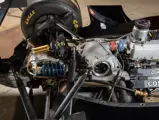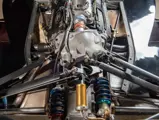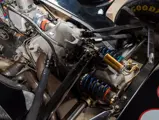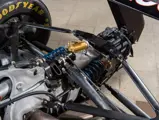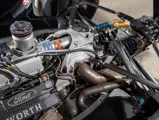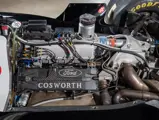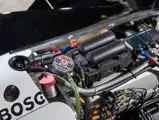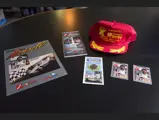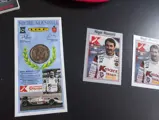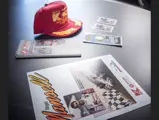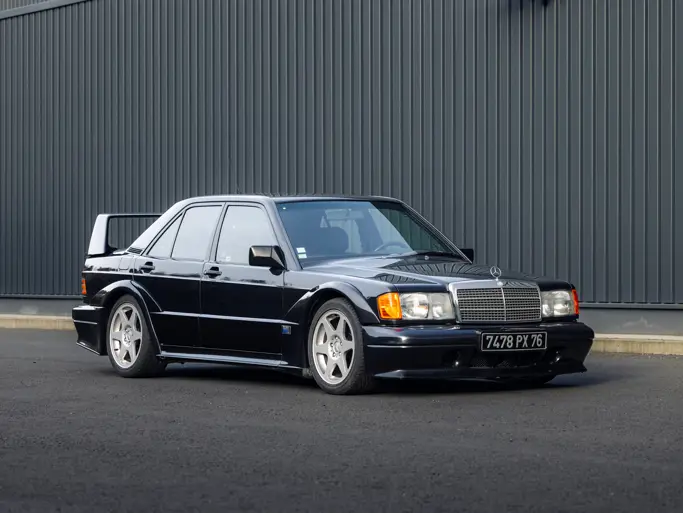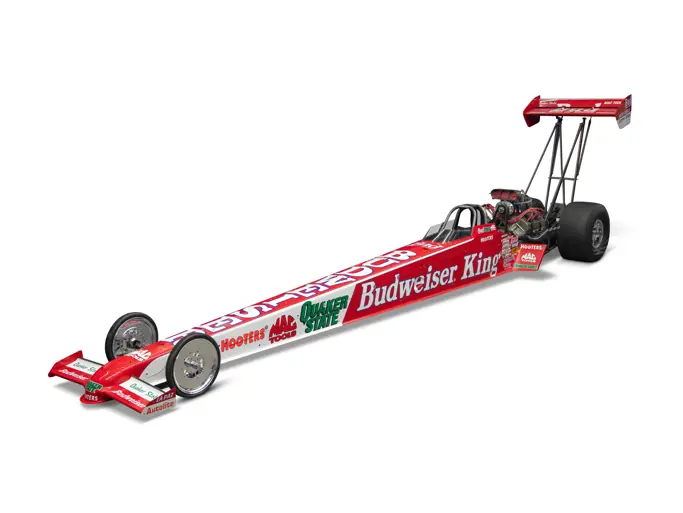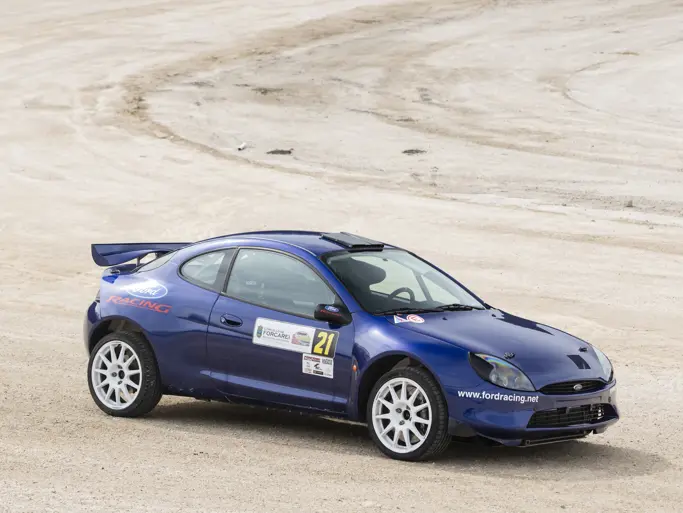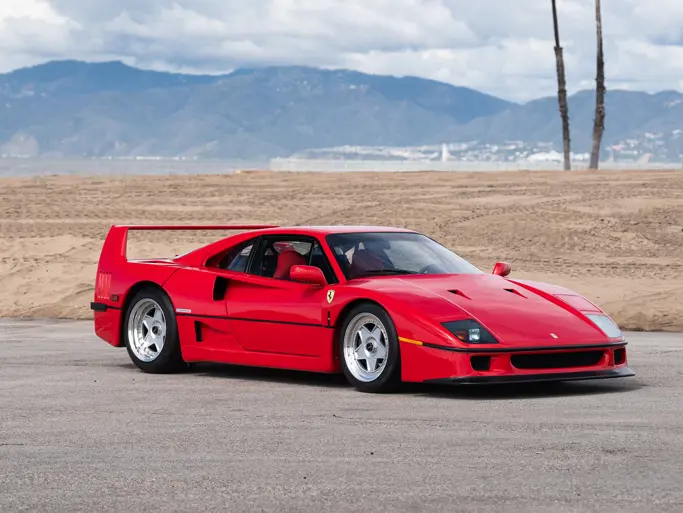The House That Newman/Haas Racing Built
1993 Lola-Ford Cosworth T93/00
{{lr.item.text}}
$995,000 USD | Sold
 | Lincolnshire, Illinois
| Lincolnshire, Illinois
{{internetCurrentBid}}
{{internetTimeLeft}}

- Newman/Haas Racing’s 1993 CART PPG Indycar World Series-winning chassis
- Powered Nigel Mansell to four of his five victories that season, with three poles
- Established Nigel Mansell as the only simultaneous reigning champion of Indy Car and Formula One
- Accompanied by workshop manual, laptop, electronic spares kit, championship hat, commemorative £2 coin, and Newman/Haas ephemera
- Equipped with a potent turbocharged, dual-overhead-camshaft Ford Cosworth XB V-8
- One of the most significant race cars of the 20th century
THE LION
Nigel Mansell, one of the most tenacious and thrilling drivers to have ever competed in Formula One, developed his reputation through fearless overtakes; by the early 1990s, he had finished runner-up in the championship three times. It was only a matter of time before he would secure the sport’s top prize. In 1992 the Williams team unleashed the dominant FW14B, quite possibly the most technologically advanced car to contest the Formula One World Championship to that point. This spectacular machine allowed Mansell to secure nine Grand Prix victories out of 17 events, and thus, the Drivers’ Championship. His teammate, Riccardo Patrese, finished 2nd with half the points tally of the champion.
After finally achieving his lifelong ambition, and with supreme confidence in his abilities, Mansell made the decision to cross the Atlantic to test his abilities against the top open-wheel drivers in the United States. Signing with championship-caliber Newman/Haas Racing, his teammate would be none other than the legend himself, Mario Andretti. This was indeed a fateful reunion, calling back to Nigel’s earliest days on the Grand Prix circuit: In 1980, Mansell secured his first race seat with the Lotus organization after a promising run as a test driver. He would contest three Grands Prix alongside Andretti and Elio De Angelis, with little success due to a lack of experience and reliability.
Now, with over 10 years of experience in his back pocket, Mansell set to prove his abilities around the ovals, road courses, and street circuits of the PPG Indy Car World Series. In addition to sharing the garage with a legendary teammate, his competition throughout the season included Al Unser Jr., Bobby Rahal, Arie Luyendyk, the young Paul Tracy, and another former F1 champion: Emerson Fittipaldi. As the season progressed, the Brazilian proved to be Mansell’s greatest adversary, resulting in a number of unforgettable on-track battles.
Never too far from drama, the Englishman suffered a devastating crash before the second event at the demanding one-mile oval in Phoenix Arizona. The resulting back injury necessitated surgery. Adding insult to this literal injury, Mansell was denied the opportunity to run his first oval race and gain crucial experience before attempting the Indianapolis 500. Despite this setback, Mansell would partake in the Indy 500. Close to the end, while leading the race, a yellow flag gave Fittipaldi and Luyendyk the opportunity to close up on Mansell. Pressing their advantage to the end, the pair finished 1st and 2nd, respectively, while Mansell took 3rd.
Achieving five victories, Mansell conquered the multi-discipline season with an average finishing position of 6.2, and by season’s end, Mansell finished just eight points ahead of runner-up Fittipaldi. For the first time in the history of motor racing, one driver reigned supreme as the uncontested open-wheel champion of the world.
THE LOLA T93/00
Largely a development of the successful T92/00 model, the T93/00 featured a number of aerodynamic and mechanical improvements over its predecessor. Up front, the central section of the front wing rose to meet an extended, needle-like nose. Ford-specification cars featured a unique engine cowl which sat at a lower profile, allowing for greater air flow. The car utilized all-carbon fiber construction, with a monocoque tub and double-wishbone suspension connected to inboard springs on all four corners. To meet the demands of the various disciplines, a high-downforce configuration was available for short ovals, road courses, or street circuits. For the superspeedways, alternative suspension geometry was utilized to extend the wheelbase, and low-drag wings worked to slice through the air.
The previous year, Newman/Haas had successfully adopted the Ford XB engine into their Lola, with Michael Andretti achieving five wins throughout the season. In 1993, this turbocharged, dual-overhead-camshaft V-8 engine again served as the heart of the racecar.
RED FIVE
This Lola T93/00, Chassis 5, participated in seven races throughout the 1993 PPG Indy Car World Series. Beginning with the very first event of the year, the Australian FAI Indy Car Grand Prix at the Surfers Paradise Street Circuit, Mansell showed his level of skill by securing bonus points with a pole position and the race win. A momentous result, he was the first Indy Car rookie to win his first race. The chassis was next utilized at the Miller Genuine Draft 200 at the Milwaukee Mile. The oldest operating speedway in the world, this one-mile oval with nine degrees of banking very much resembles a scaled-down version of the Brickyard. After gaining much-needed experience at the 500-mile event, Nigel secured his first oval win of the season.
Chassis 5 would make its next appearance contesting the Budweiser/G.I. Joe's 200 at Portland International speedway. A pole position secured bonus points for Mansell, and a 2nd-place finish helped to maintain his championship lead.
The Molson Indy Toronto proved to be Mansell’s most difficult race weekend of the season. In the sessions preceding the race, the Englishman suffered two crashes at the first turn, greatly diminishing his chances of success. After 60 laps bogged down in the midfield, a wastegate failure caused Chassis 5’s first and only retirement for the season.
Fortunes would change at the second 500-mile event of the season. The Marlboro 500 at the two-mile Michigan International Speedway was Indycar’s fastest event at the time. The Newman/Haas cars proved to be the class of the field, with Andretti taking the pole at 234.2 mph, followed by Mansell. Arie Luyendyk took the first spot on the second row, nearly four mph down on the front duo. Despite suffering from a splitting headache, the grueling race resulted in Mansell’s first 500-mile victory and second oval win of the season. Andretti took the runner-up position, marking the teammates’ only joint appearance on the podium.
Starting alongside Paul Tracy at the Texaco/Havoline 200, Chassis 5 helped Mansell navigate the formidable four-mile Road America circuit in Elkhart Lake, Wisconsin. The lengthy track makes fuel management a key component of success, and the Newman/Haas team kept Mansell on a tight strategy. Unfortunately, he was unable to take on the charging Tracy, and the Englishman settled for a respectable 2nd.
The final event in which Chassis 5 entered proved to be the most consequential. The Bosch Spark Plug Grand Prix at the Nazareth Speedway would be the final oval event of the calendar, and Mansell’s sweep of the previous three oval events set up a prime opportunity to secure the title. Starting on the pole, Nigel’s chances looked good, but once the green flag waved, Fittipaldi and Tracy darted ahead, leaving Mansell to settle for 3rd. As the race progressed, he battled through traffic to retake the lead—and ultimately the checkered flag.
Pulling into victory lane, the Englishman was elated, having achieved what no one had done before: In that moment, he was the reigning Formula One and Indy Car grand champion. Standing as a monument to this feat, this Newman/Haas Lola T93/00 is a deeply significant racing machine worthy of a place of honor in any collection with an open-wheel focus.



